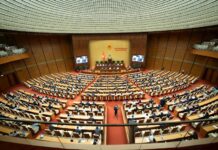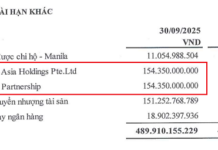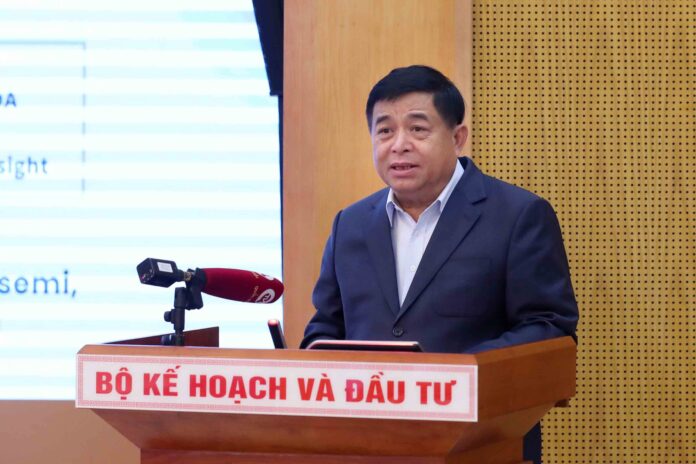At the seminar on “Enhancing the Role of Vietnamese Enterprises in Developing Human Resources for the Semiconductor Industry,” organized by the National Innovation Center of Vietnam (NIC) on the afternoon of August 9, Minister of Planning and Investment (MPI) Nguyen Chi Dung emphasized that to develop the semiconductor industry, Vietnam needs to prioritize investing in high-quality human resources development for the sector.
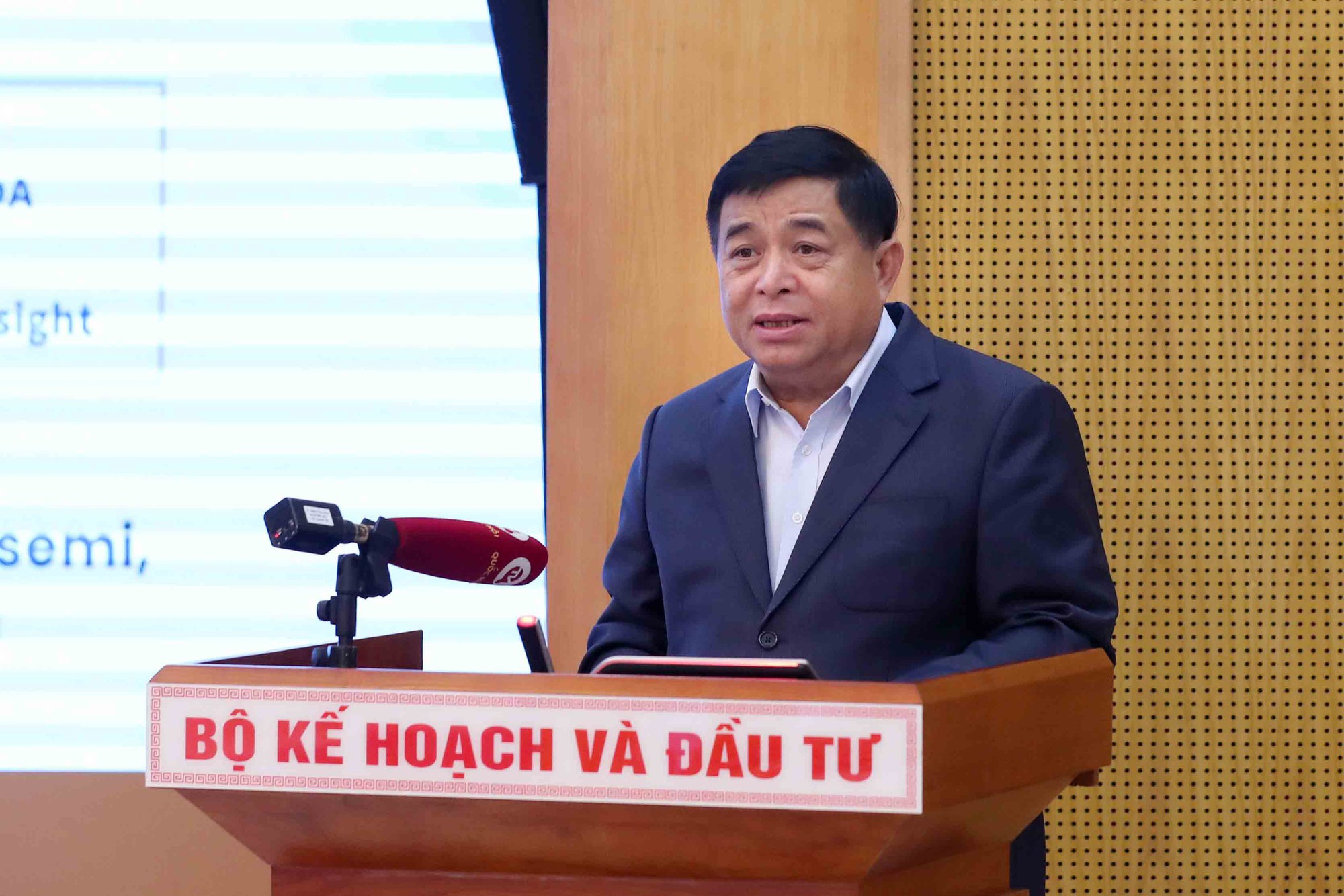
Minister of MPI Nguyen Chi Dung delivers a speech at the seminar
According to Minister Nguyen Chi Dung, the semiconductor industry is one of the important foundations of the modern economy and is at the heart of the technological revolution, forming the basis for the development of many high-tech industries. The ministry has advised and submitted to the Prime Minister the “Project for Human Resource Development in the Semiconductor Industry by 2030, with a vision towards 2050,” aiming to train 50,000 semiconductor engineers by 2030.
Minister Nguyen Chi Dung highlighted the importance of the linkage model between the Government, enterprises, and educational institutions in developing human resources for the semiconductor industry. He emphasized that the process of curriculum development, student selection, organization of training and practice should be carried out based on close collaboration between educational institutions and enterprises, integrating theory with practice.
From the perspective of universities, Prof. Dr. Vu Hai Quan, Director of Vietnam National University Ho Chi Minh City, affirmed the crucial need for the involvement of governmental agencies and enterprises in the training process.
However, Prof. Vu Hai Quan also pointed out that with limited resources, it would be challenging for universities to make significant strides in semiconductor human resource training on their own. In such an important field as semiconductors, he believed that substantial financial investment from the government is essential.
According to Prof. Vu Hai Quan, our goal to train 50,000 semiconductor engineers by 2030 speaks volumes. The Director of Vietnam National University Ho Chi Minh City stated that while the opportunity is immense, a robust mechanism is necessary to support training, curriculum innovation, student internships, and technology transfer.
Representing the enterprises, Mr. Truong Gia Binh, Chairman of the FPT Corporation, expressed his admiration for the dedication of the leaders of the MPI and some localities, including Da Nang, in training human resources for the semiconductor industry.
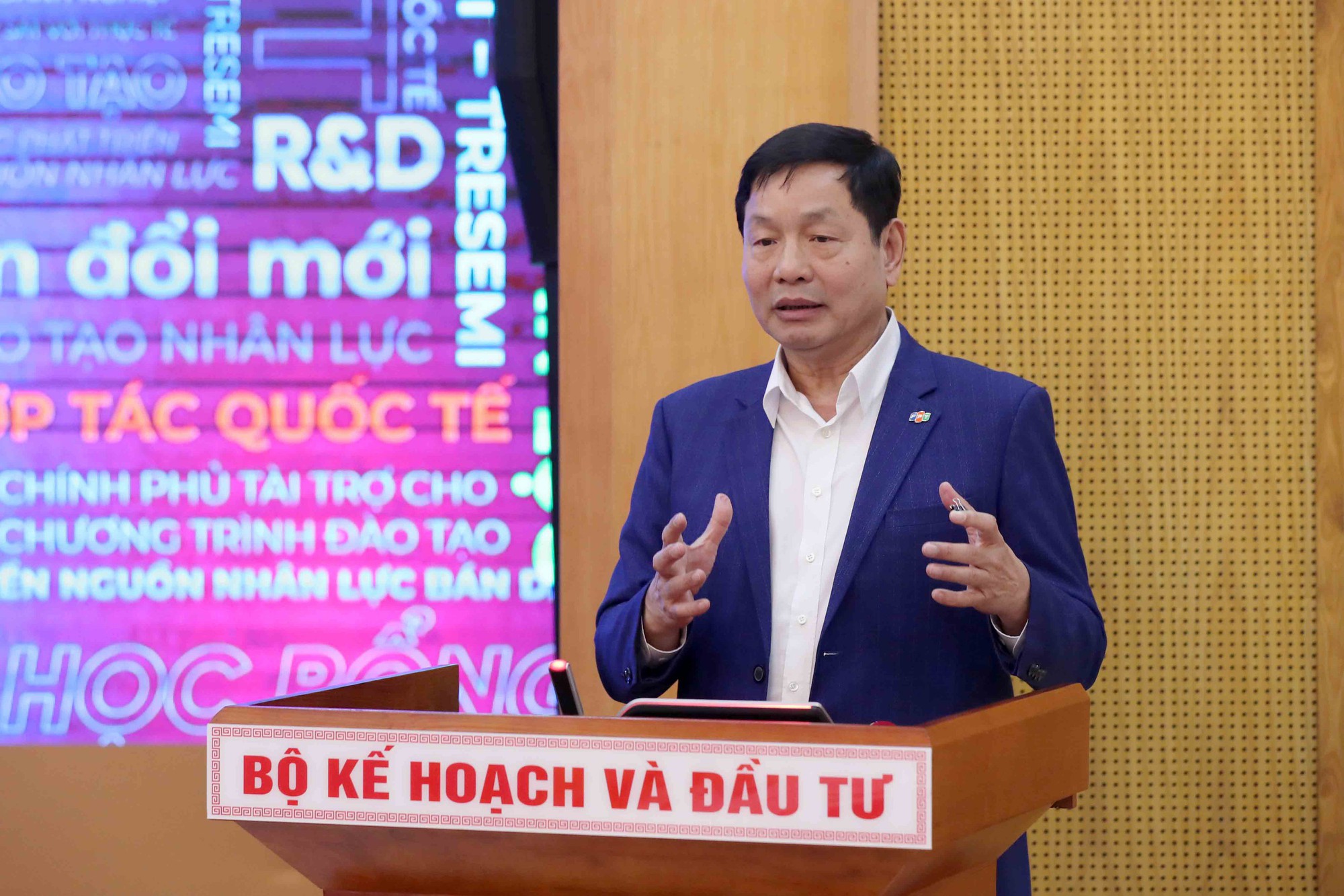
Chairman of FPT Corporation Truong Gia Binh
In the linkage model of the three entities (Government, enterprises, and educational institutions), Mr. Truong Gia Binh stated that there were times when the Government was more dedicated and diligent in developing the semiconductor industry than the enterprises themselves.
Towards the common goal of training 50,000 semiconductor engineers by 2030, Mr. Binh shared that FPT Corporation commits to training 10,000 personnel. Currently, the training program is being vigorously implemented within the corporation’s system, ranging from short-term courses to college and university levels. FPT has also been connecting with partners from the US, Japan, and Taiwan for collaborative training initiatives.
Chairman Truong Gia Binh expressed optimism about the career prospects in the semiconductor industry. He emphasized that students would have abundant job opportunities when trained in this field, which is currently attracting global attention. “When I meet with Japanese businesses, they offer us many opportunities if we have the human resources. It is our task to learn and improve continuously,” said Mr. Binh.
During the event, the graduation ceremony of the “Basic VLSI Physical Design” program was held. This specialized VLSI design training course was organized by NIC in collaboration with FPT Corporation, Tresemi Organization (USA), Cadence Corporation (USA), and the support of various universities, with 70 participants.
Mr. Truong Gia Binh shared that the graduates from this program are presented with numerous opportunities to work within consortia with FPT in the technology field. The Chairman of FPT also expressed his aspiration to materialize ideas about chip development and fulfill the mission of advancing Vietnam’s semiconductor industry.







